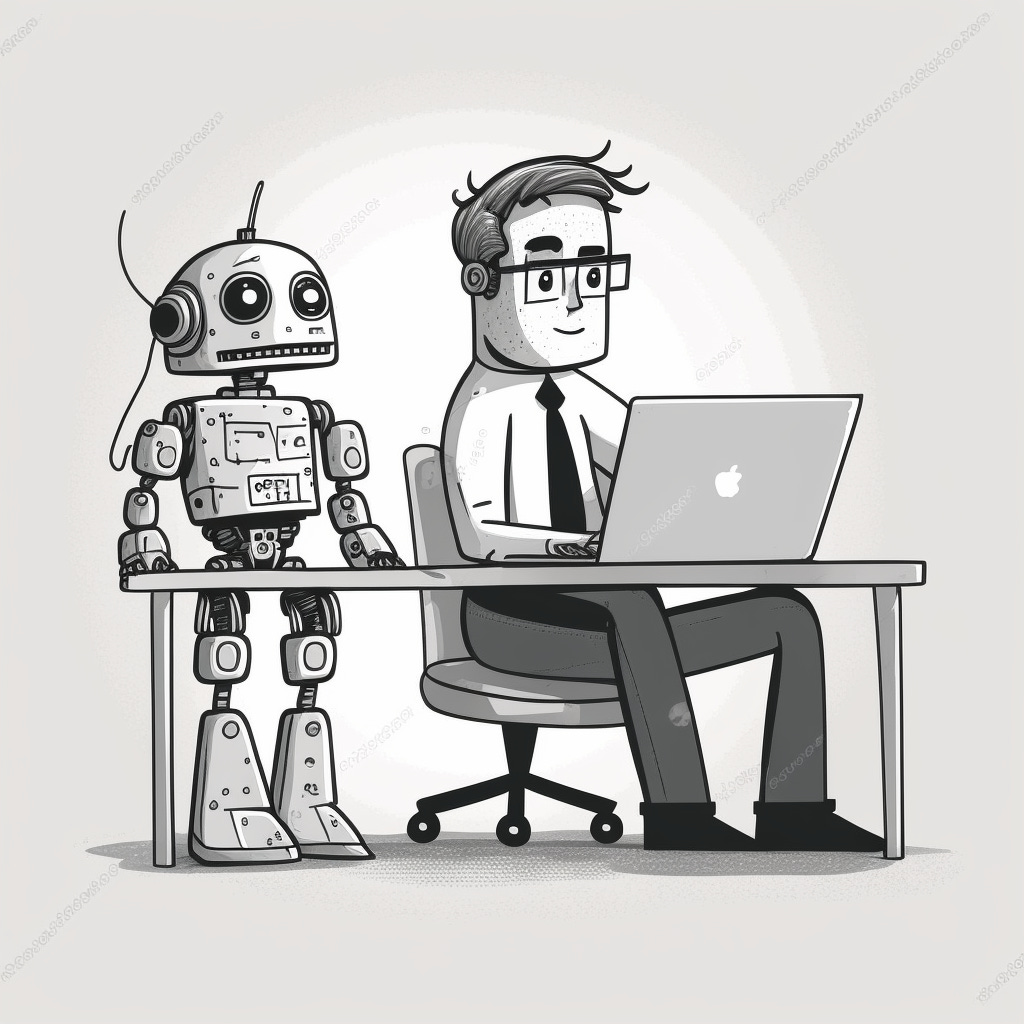
GONZA NARDINI
2023-04-15
How AI Will Change Software Development
This piece focuses on the macro changes that are coming. For the changes in actual development workflow, I will be writing a different piece shortly.

Today writing software is expensive. Even simple apps cost a lot to build. Anything that's more than a landing page requires custom code and the people that know how to write that custom code are very limited and in high demand. They are also generally quite slow at writing said software. Lots of people have ideas about things to build, businesses to create or even just for fun projects, but the barrier of creating code is huge. Any startup requires a technical cofounder or is mostly doomed to fail and working with software development firms can be nightmarish due to how difficult the process is.
AI is transforming software development by substantially speeding up the process and simplifying the learning curve. With AI-driven tools at their disposal, developers can focus on high-level architecture decisions while delegating most of the actual implementation to AI, resulting in a considerable acceleration of software creation. You still need specialized knowledge to build software and some level of education or talent, but it's accessible to a larger number of people and it's much quicker to create apps.
Suddenly, building an app becomes much more affordable. Instead of waiting two months for a team of two engineers, you can now have your app built by a single engineer in just a few days. As software development becomes commoditized, the volume of software being created increases. Software development firms grow more common, resembling the relationship of law firms to lawyers or accounting firms to accountants. Large companies maintain their own in-house teams, while it becomes much more common for small and medium-sized companies to outsource their software development needs.
Another significant impact of AI-driven software development is the increase in entrepreneurial opportunities. As software becomes more affordable and accessible, individuals from diverse backgrounds will find it easier to launch their own startups. This democratization of software development will likely lead to a surge in new businesses and innovative solutions. The fusion of ideas and expertise will ultimately drive growth and innovation.
Greater accessibility to app development also means that individuals in traditionally low-tech skilled professions can benefit from tailored software solutions. For instance, tradespeople such as carpenters, plumbers, or electricians can use customized apps to manage their projects, track inventory, or schedule appointments with clients. Similarly, artists and craftsmen can showcase their work and connect with customers through mobile platforms designed specifically for their needs. Even small-scale farmers can leverage agriculture-focused apps to optimize crop yields, monitor weather conditions, or manage their finances. By empowering these professionals with tailored software solutions, we can expect to see increased efficiency, innovation, and growth in various sectors of the economy.
With some companies currently employing hundreds or even thousands of engineers, how will they react to these changes? There are two primary options: they could use their increased productivity to build and innovate much more rapidly, expanding into new markets and further differentiating themselves, or they could view this as a cost-saving measure and downsize large portions of their workforce. New software development behemoths specializing in general software development will emerge, and in an attempt to compete, numerous boutique firms focusing on specific markets or verticals will likely appear as well, further driving down the cost of software development. As the industry shifts, a larger number of engineers may find themselves working for software development firms or taking advantage of the growing opportunities as competitive freelance developers.